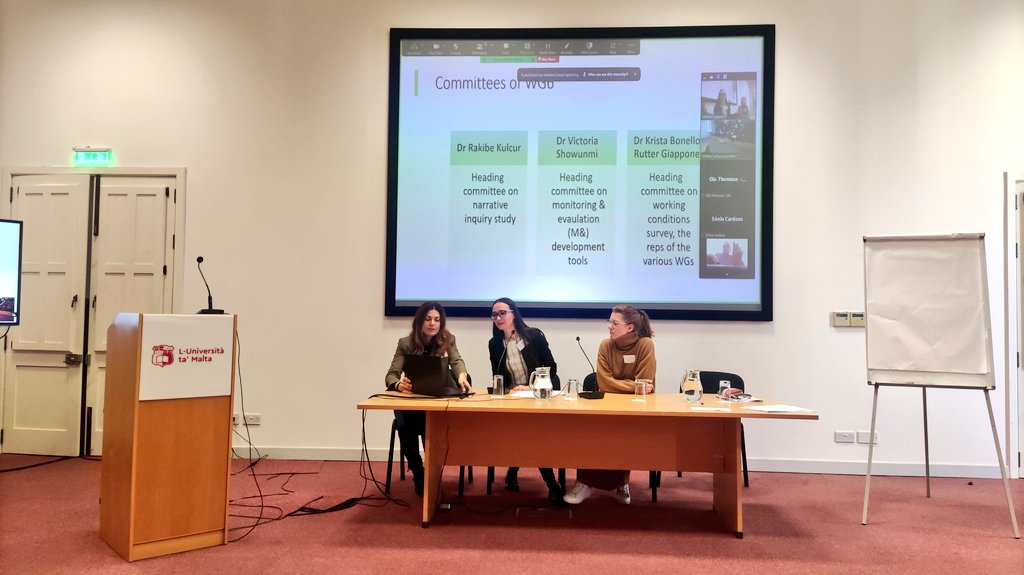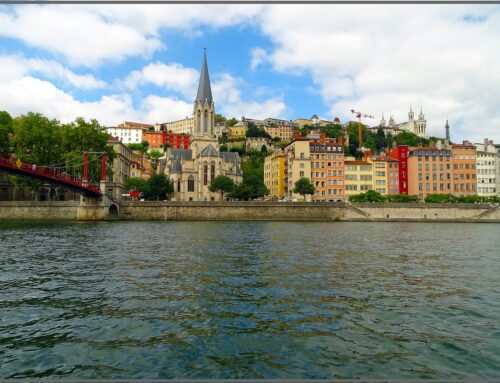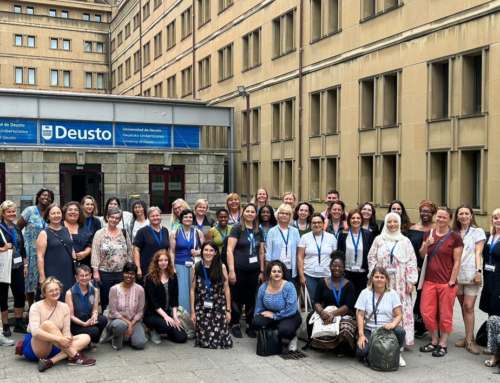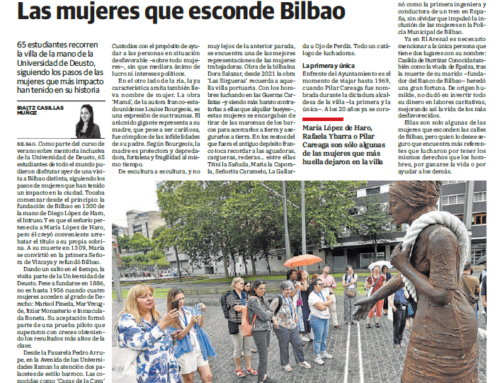On February 16, 2023, a Management Committee meeting, and parallel meetings of all working groups in hybrid format took place in Valletta Campus, University of Malta, including a meeting of the working group 6 (WG6) “Monitoring & Evaluation” chaired by leader Maria Brown.
The WG6 meeting started with the presentation “Setting up the European Observatory on Femicide” by Professor Marceline Naudi of the University of Malta. At the beginning of her presentation, the professor emphasized that, although femicide has been rampant in Europe for many generations, it was only recently that this issue began to be taken seriously and studied as a unique social phenomenon. Notwithstanding the magnitude of the problem and calls by the United Nations Special Rapporteur on Violence against Women, data on femicide, until recently, was not officially and systematically collected in the European Union and wider Europe and there was a lack of transnational tools for the study of femicide. The professor mentioned that the COST Action on Femicide across Europe (2013 – 2017) made a big contribution in this area as a result of which negotiations were started on the establishment of a European Observatory to monitor different types of femicide across the continent. At the closing conference of the Cost Action in Malta from February 14 to 17, 2017, it was decided that the Observatory in Malta would be established. Now the Observatory is successfully operating and attracting various projects.
The following report was given by Krista Bonello Rutter Giappone on the survey development process. A pilot survey of early career precarity is currently in focus. It is also planned to launch the survey outside Malta. After reporting on the progress of the survey, several suggestions were also received such as that attention should be paid to ethical approval. Comments emphasized that other working groups could also use the database of survey results. The database can then be part of the observatory. As a suggestion, it was said to share the template with all working group leaders and to find out from other working groups what data they want to collect to be integrated into the database. It was emphasized that it is also important to launch the survey in different languages, adapting the open questions of the survey to the native language, so that the result of the obtained results is more qualitative.
The next report on monitoring and evaluation progress was given by Areti Damala. During the report, it was emphasized that the leaders of the working group should be given the opportunity to work on the creation of the database and the issues that should be included in the database. It was also emphasized that the database should be made available to all participants/ researchers. There was also a question about the need to coordinate surveys within working groups, which will later be used in the creation of a database.
In conclusion, Gilda Hoxha presented ideas about the conceptual framework, emphasizing different relevant indicators, such as pre-covid and post-covid, also adding post-colonialism, vulnerability, resilience, participatory methodology, materialist-post-materialist, neoliberal influences/ dynamics, researchers in remote and war-torn areas, don’t limit the indicators to men and women. This is essential to get a broader perspective on the results of the study.
At the end of the meeting, WG6 leader Maria Brown and WG6 co-leader Anneleen Mortier informed that the next hybrid WG6 meeting is planned on April 26, where it is planned to discuss the work of WG6 in 2023 and future plans.




